PLAGIARISM DISCLAIMER:
Greetings Dramatards 
If any of these exact storybeats ever sound familiar, it's because I plagiarized most/all of it from a longform Afrikaans Calvinist article (which in turn probably plagiarized it from some more famous English sources), which my father had excitedly desired me to read during the 2024 December holidays. The vast majority of the article revolved around a Calvinist introspection about self-deceit, and how History and politics is shaped by how people record and perceive historic events both during and after key happenings. Very long and boring.
But the incredible and exciting part my father wanted to showcase me, was a chapter regarding the infamous Tulip Mania period, which occurred during 1634-1637 in Holland, during the zenith of Dutch colonial and economic power, when the Dutch was by far the most prosperous nation on earth, when taken into account their meagre population and size, due to the astronomical wealth generated by the Dutch, due to the infamous VOC (Vereenigde Oostindische Compagnie) or Dutch East India Company, perhaps one of the wealthiest private enterprises in all of human history.
During the period, one of history's 1st and most well documented Speculative Bubbles occurred, when seemingly the entire Dutch nation state was beset by a fervent mania from all sectors of society. Rich merchants and poor farmers would buy the new fad, Tulips imported from Turkey & China, at increasingly outrageous sums of money, for the sake of selling these (at the time) rare imported plants, which the Dutch didn't know how to perfectly cultivate, so it wasn't a gaurantee that you could just make more of them once you bought rare tulips for literal prince's ransoms!
These tulips, which at 1st were bought, because they were the showing-off fad for the turbo wealthy new Merchant-class of the state, were then bought for the sake of selling at ever increasingly higher prices, which in turn made the tulip a fad for wealth accruement instead! Eventually, inevitably, as we can all predict, prices eventually went down, which burst the speculative bubble, and the prices went into freefall, and fortunes were wiped out of existence, as these once prince's ransom priced foreign flowers, became......priced at the rate of regular funny and unusual foreign flowers! 













SHORT STORY INTRO:
When Tulips arrived in Holland, it was said that the !dutch completely lost their senses. There was an infamous story about a sailor whom had been at sea long enough, to have been completely kept in the dark about Tulip Mania in Holland, and having been out of touch with the latest political/social news of his home country, as many VOC voyages could take literally as much 2 full years to complete! Of course as the Silk sailing routes were established, these timeframes reduced to less than 1 year - but still long enough to be out of tune with the country's latest excapades!
Anyways, the late 1630s a dutch sailor, whom had just disembarked, had went to the owner of the goods his vessel had transported, to notify him his shit had just arrived. Gratified by this good news, the merchant rewarded the sailor with a breakfast. On the large table on which the merchant had given the sailor his meal, at one end there had laid what looked like a red onion 


The sailor took the onion for seasoning on his bread, and GTFO'd out of the merchant's storehouse to go and find a private spot to go eat his meal in peace. Never in his wildest imagination would he think this act would cause him such grievous misery. Just as the sailor had left, the merchant discovered to his horror, that an invaluable 

 imported Augustus tulip bulb was MISSING
imported Augustus tulip bulb was MISSING  which at the height of Tulip Mania was worth a whole commercial farm on its own.
which at the height of Tulip Mania was worth a whole commercial farm on its own.
The merchant and staff ripped the storehouse asunder in their angst, looking for the missing invaluable Augustus Tulip. Eventually someone remembered the sailor being the most recent stranger in the storehouse, and the goon squad proceeded rake apart the entire port looking for him 


They found the hapless, luckless, unfortunate & clueless sailor having already eaten the fricking tulip bulb, and proceeded to try and strangle him alive 

 He was imprisoned for his crime!
He was imprisoned for his crime!
CHARLES MACKAY:
This infamous story, about the insanity of the Tulip Mania, comes from a very famous economic writer & journ*list Charles Mackay (27 March 1814 – 24 December 1889). In his magnum opus, the book called "Extraordinary Popular Delusions and the Madness of Crowds" he wrote about what he termed "Crowd Psychology" & "National Delusions".
The book consists of a series of short stories about a myriad of events in the past, but the topics are all united in the mass delusion or hysteria of crowds/nation-states, or mass adoption of fads and hysteria by groups of people. The stories covered things like the large scale witch-burnings across europe, the fad and obsession with the fake science of alchemy (turning iron into gold) and hysteria about haunted buildings.
!bookworms The book had become immediately successful, and continued to garner infamy well beyond Charles Mackay's death - he had a strong grasp of engaging storytelling. But the parts of "Extraordinary Popular Delusions and the Madness of Crowds" which really REALLY 




 propelled Charles Mackay into infamy, was his chapters about Speculative Bubbles - specifically his 3 chapters of infamous about Speculative Bubbles known before his time.
propelled Charles Mackay into infamy, was his chapters about Speculative Bubbles - specifically his 3 chapters of infamous about Speculative Bubbles known before his time.
Each of the 3 chapters revolved around a particulour economic disaster, brought about by lunatics overinvesting or speculating upon companies/stocks/products well WELL beyond their realistically graded values. They were the South Sea Company bubble of 1711–1720, the Mississippi Company bubble of 1719–1720, and of course the famous Dutch tulip mania! 




THREE CHAPTERS ECONOMISTS LOOK UP TO: 


While the rest of the book "Extraordinary Popular Delusions and the Madness of Crowds" would be largely forgotten as interesting and entertaining reads for a book from 1840, the 3 chapters on Speculative Bubbles would reach such incredible infamy in the Economists world, that a very large amount of people would reference it historically.
Present-day writers on economics, such as Michael Lewis and Andrew Tobias, lauded the three chapters on economic bubbles.
====(from the WashingtonPost article)
C.S. Lewis once asked himself if anyone could actually write a story as magical as that title. To me, Charles Mackay's "Extraordinary Popular Delusions and the Madness of Crowds" possesses an almost equally evocative power. First published in 1841 and expanded in 1852, it chronicles some of the many varieties of human folly, obsession and self-delusion. Here, in fact, are the deep taproots of the credulity and lemming-like behavior that characterize today's social media.
More recently, economic writers such as Andrew Tobias and Michael Lewis have championed the book. Overall, one might characterize Mackay's work as popular history, conveyed in a tone of ironic, head-shaking amusement.
====(end quote)
Many people unironically considered Tulip Mania as a Classic for Economic History for the longest period. The book is so famous that non-historian economist-Journ*lists cite Mackay whenever there is a recent fraud or Speculative Bubble implosion occurring; like the recent Bitcoin and Shitcoin and NFT 




 Bubble implosion which has dominated headlines in economic forums and newsfeeds, when FTX caused a chain-reaction of wiping out untold millions and billions of wealth out of existence.
Bubble implosion which has dominated headlines in economic forums and newsfeeds, when FTX caused a chain-reaction of wiping out untold millions and billions of wealth out of existence.
https://www.esports.net/news/crypto-tanking-affecting-nft-industry/
TULIP MANIA AND CALVINIST PROPAGANDA: 


The only problem for this internationally critically acclaimed book about Tulip Mania? It's complete absolute total bullshit, or in the very least heavy propaganda! The short story about the Dutch Sailor mistaking the tulip bulb for an onion? Complete fabrication .
The issue for Mackay wasn't that he was a deliberate liar, but that he had taken his primary sources, which were overwhelmingly Dutch Calvinist propaganda leaflets and articles, at absolute face value. Many good historians go to great lengths to decipher primary sources, written during contemporary times about events, to determine how bias from the authors could fabricate or contaminate their view of events. Mackay literally straight up consumed Dutch Calvinist Propaganda leaflets as they were!
PROPAGANDA LEAFLETS:
So what exactly was the deal with Calvinists? What the heck do they have to do with anything? Well Calvinists were relatively conservative for their contemporary timeframe, and the feared the new era of Holland having accrued so much unthinkable wealth, more than any nation-state before had ever known to have accumulated so fast and in such an incredible short timespan.




They feared and believed that all of this wealth of the Merchant-class was rotting and decaying society. They feared that this new trend of consumerism and speculation on stocks was leading to societal downfall. Dutch society had underwent intense transformation in the past 100 years in that moment in time.
So they had created stories with near-comical carrecatures of people, where the common theme was greed and avarice being the downfall of everyone involved.
FICTION VS BORING REALITY:
According to Charles Mackay, which took the Calvinist Propaganda at face value, the Tulip Mania was so extreme during 1637, that all levels of Dutch society went completely batshit. Other sectors of the economy went neglected, and so much was invested into Tulip Mania, it was as if Holland was expending during a World War time economy! Everybody from nobles, to wealthy merchants, to poor farmhands, were borrowing recklessly to get in upon this wealth craze.
According to Mackay those left holding the bag were either bankrupt, or even fricking worse - in deep debt!
In the book "Extraordinary Popular Delusions and the Madness of Crowds" you can read of people losing their minds and selling their most valuable possessions to buy or speculate on a few Tulip bulbs. Mackay gives the example, in his story covering Tulipmania, of one particularly unhinged Dutchman, who exchanges 12 acres of land for ONE fricking Augustus Tulip Bulb! 
The reality is much more dull - in fact the scale of the Tulip Mania, may have been completely fricking overblown due to Mackay's book, which has been in the public international consciousness for the past 200 years. No record of even ONE bankruptcy could even be confirmed by Dutch historians as due to Tulipmania, during the period of 1634-1637.
https://www.smithsonianmag.com/history/there-never-was-real-tulip-fever-180964915/
====(from Smithsonian)
Here's where the myth comes into play. According to this narrative, everyone from the wealthiest merchants to the poorest chimney sweeps jumped into the tulip fray, buying bulbs at high prices and selling them for even more. Companies formed just to deal with the tulip trade, which reached a fever pitch in late 1636. But by February 1637, the bottom fell out of the market. More and more people defaulted on their agreement to buy the tulips at the prices they'd promised, and the traders who had already made their payments were left in debt or bankrupted.
In fact, "There weren't that many people involved and the economic repercussions were pretty minor," Goldgar says. "I couldn't find anybody that went bankrupt. If there had been really a wholesale destruction of the economy as the myth suggests, that would've been a much harder thing to face."
That's not to say that everything about the story is wrong; merchants really did engage in a frantic tulip trade, and they paid incredibly high prices for some bulbs. And when a number of buyers announced they couldn't pay the high price previously agreed upon, the market did fall apart and cause a small crisis—but only because it undermined social expectations.
====(end quote)
In fact only a small fraction of Dutch society even partook in the Tulipmania, and usually only the upper-middle rich Merchant classes. Less than 5% of the whole population even bought a tulip at any point, and when the bubble burst, those whom lost money were those least vulnerable from bankruptcy. While losing half your wealth is a serious hit, these Dutch merchants were so filthy stinking rich by the mid 1640s, they literally didn't care!
Additionally, the reality was that most dutch Merchant-class bought tulips as a show of wealth, it was a demonstration of their cosmopolitan and urbane manner to show off amongst all of their straggy rich merchant friends. The majority of Tulip buyers and speculators never even expected to make money, it was like wealthy influencers and Hollyweird freaks buying branded crap like Nike shoes or Rolex watches to show off their wealth.
IN FACT, there exists something called the law of Veblen Goods, where things become sought after BECAUSE they are morbidly expensive, because they are literal "show-off" goods! (Rolexes, Ferari, ect)
Which is what some economists believe is likely what actually happened, rather than a true Speculative Bubble like Bitcoin and Shitcoin. Or even the other 2 Speculative Bubbles which Mackay included in his book, which were much closer in reality to nation wealth destroying events.
This doesn't mean that Tulipmania DIDN'T happen, or that many peeps lost wealth, but it has been vastly overstated, in large part BECAUSE of Mackay's book.
THE REAL DRAMA REGARDING CHARLES MACKAY! 






Now the 2nd point of drama for Charles Mackay in recent times is the fact that despite his incredible infamy about his internationally successful book regarding mass mania and hysteria and fad following by crowds, and especially his famous chapters regarding Speculative insanity, was that he HIMSELF was likely a turbo midwit fool who fell head over heels for a Speculative Bubble in his own contemporary times, during which he lived!!!
Mackay was a popular economic newspaper columnist in 1841 when he wrote the book "Extraordinary Popular Delusions and the Madness of Crowds". And what's incredible is that not even one mention is made about what is likely THE most economically destructive Speculative Bubble in all of recorded human history so far, and which vastly outstrips the scale of even large bubbles like Shitcoin and even frauds like Enron and the Theranos fraud, which eviscerated billions and billions of wealth into nothingness.
Mackay our expert in Speculative Bubbles not only lived through the 1840s Britain Railway Mania, which destroyed wealth on an unfathomable scale, but never so much as makes a fricking peep about them!
1840s RAILWAY MANIA: 










https://en.wikipedia.org/wiki/Railway_Mania
By the time the 1840s had arrived, Bongland  was at the height of its colonial power, and industrialization. And Bongland was leading European states in terms of industrializing its entire society and economy with new fabulous technologies. The most significant was the Railway and Train.
was at the height of its colonial power, and industrialization. And Bongland was leading European states in terms of industrializing its entire society and economy with new fabulous technologies. The most significant was the Railway and Train. 

 A transport technology which completely terraformed society to the same degree as radio or the internet had done during their respective timeframes.
A transport technology which completely terraformed society to the same degree as radio or the internet had done during their respective timeframes.
People understood how significant the wide adoption of Railroads were becoming, and the technological improvements to the steam engine continued every consecutive year. Entrepreneurs flocked to Railroad and Transport companies, as they correctly predicted that Railways would quite literally trailblaze 



 the economy of britain and her colonies. The issue, is that they vastly, VASTLY overpredicted the actual economic output and influence railways & trains would have upon Bongland's economy, well beyond human reason.
the economy of britain and her colonies. The issue, is that they vastly, VASTLY overpredicted the actual economic output and influence railways & trains would have upon Bongland's economy, well beyond human reason.
====(from Focus article)
By the mid-1840s, the economy was improving and the manufacturing industries were once again growing. The Bank of England cut interest rates, making government bonds less attractive investments, and existing railway companies' shares began to boom as they moved ever-increasing amounts of cargo and people, making people willing to invest in new railways.
And at its peak, railway investment—which lagged a few years behind planning applications—surged to 7% of GDP, representing half of total investment in the economy at the time. 



====(end quote)
But even MORE INSANE about our boi Mackay wasn't just that he DIDN'T foresee the Speculative Bubble of the 1840s Railway Mania, despite his book on Mass Hysterias, or that he cheerled the overspending on Speculating on Railroad bonds for his fricking readers whom trusted him implicitly in his articles for the Glasgow Argus, BECAUSE of his fame for the book of the book "Extraordinary Popular Delusions and the Madness of Crowds", instead THIS MOTHERLOVER was even on the fringes of the extreme end in terms of being a nutjob Speculator for the Railroad bond market!!!!!!!!
The short story was that Britain is a relatively small island(s) and there just wasn't enough villages, cities, ports or key-points to connect via railway to make economic return upon such gratuitous overinvestment. These railroad companies would build connections between big cities and tiny Bongistan villages of like 50 people, which as you can well imagine, didn't exactly accrue trade to the scope of London to Paris.........













Just like modern China now finding out that they have likely overspent on infrastructure, where tiny villages have been connected to Beijing via 6-lane superhighways. When inevitably the grotesque overspending did not yield appropriate economic activity return from laying Railways across every square-meter of the entire fricking British Isles, the usual Bubble tanking underwent the usual market bottom falling routine.
An unlike the Tulip Mania, the Railroad mania DID influence the entirety of Bonland's economy and social fabric. Rich AND poor people alike invested recklessly, many upon fricking Mackay's advice, and many faced bankruptcy, and worse massive debt 






































IN FACT, just to demonstrate how badly people got burned from the 1847 Railroad Mania crash, there was something called Company Scrips. Where for example you paid only 5$ for a Scrip in a 100$ share, and if the 100$ share doubled its value into 200$, you just made 100$ from 5 bucks Unfortunately for all the hapless midwits who bought into this terrible scheme, Scrips worked fricking BOTH ways. Many peeps put themselves into absurd debt for just fricking 5 bucks!
And uh that's about it for this incredible story, hopefully this story was as interesting for you guys as well! 







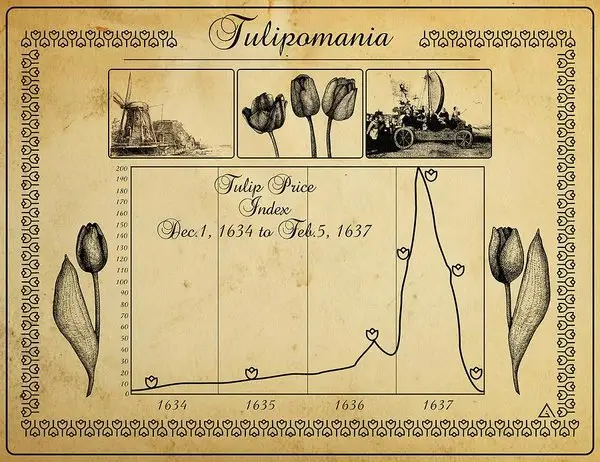



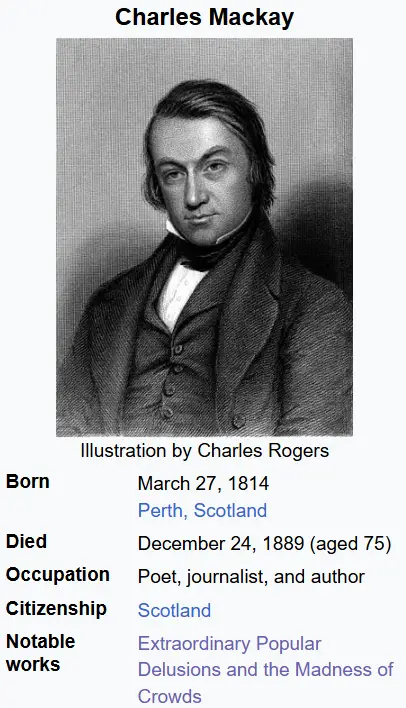
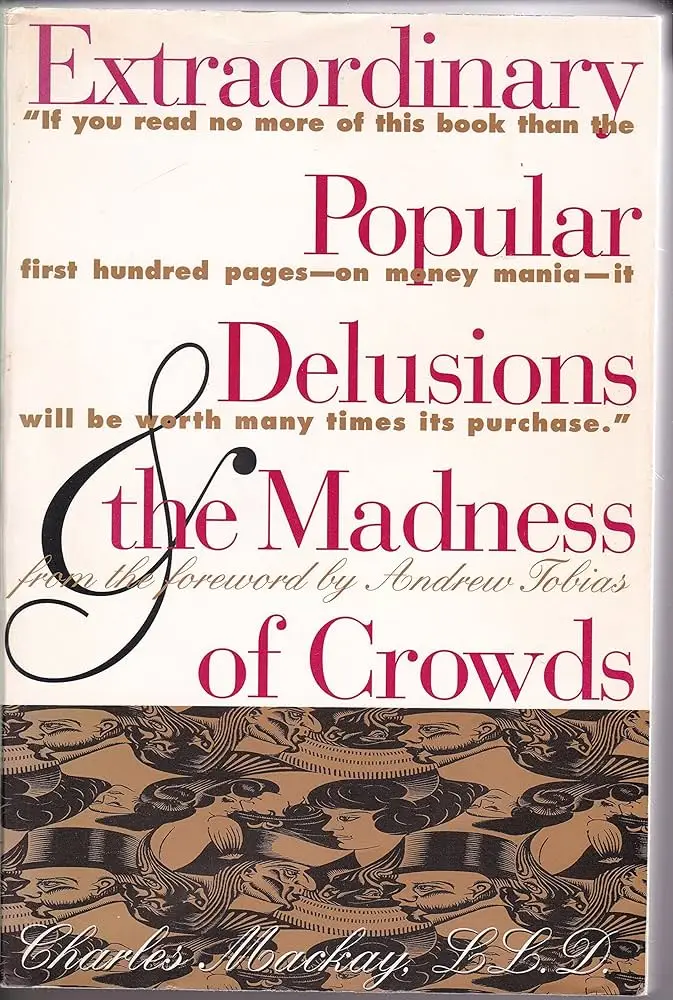
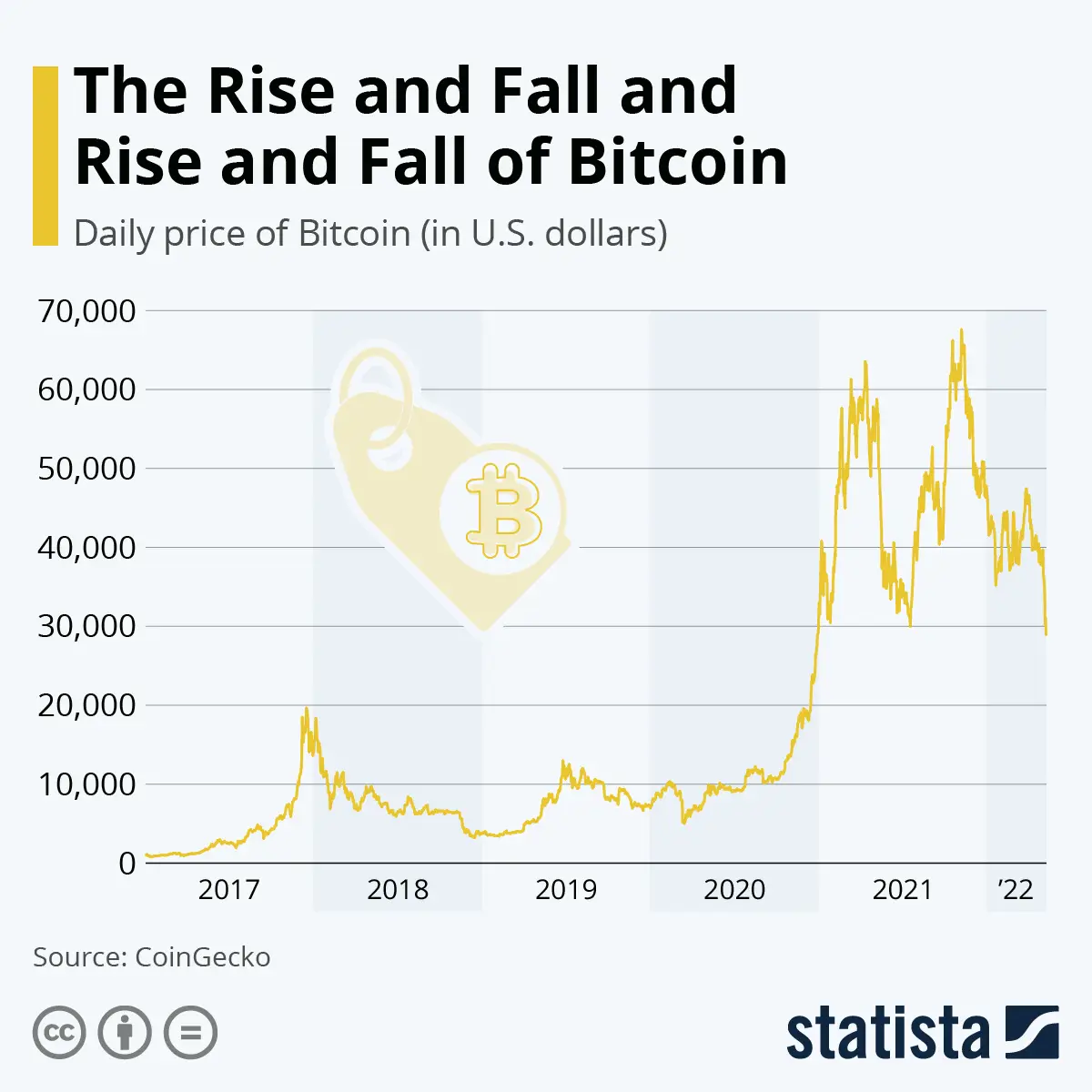
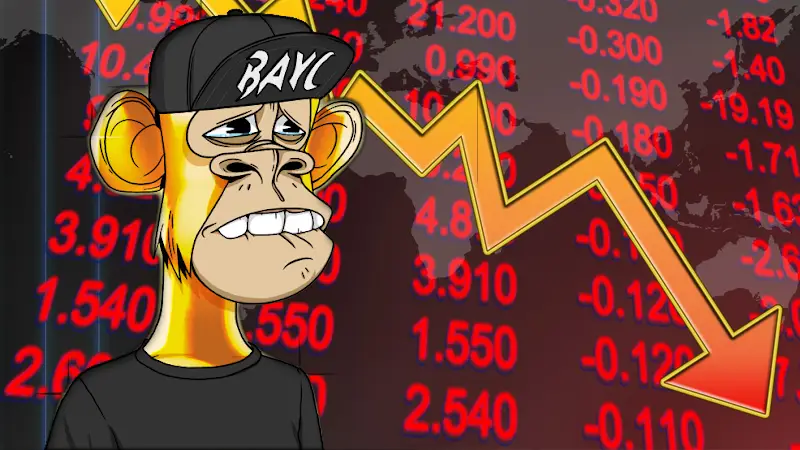
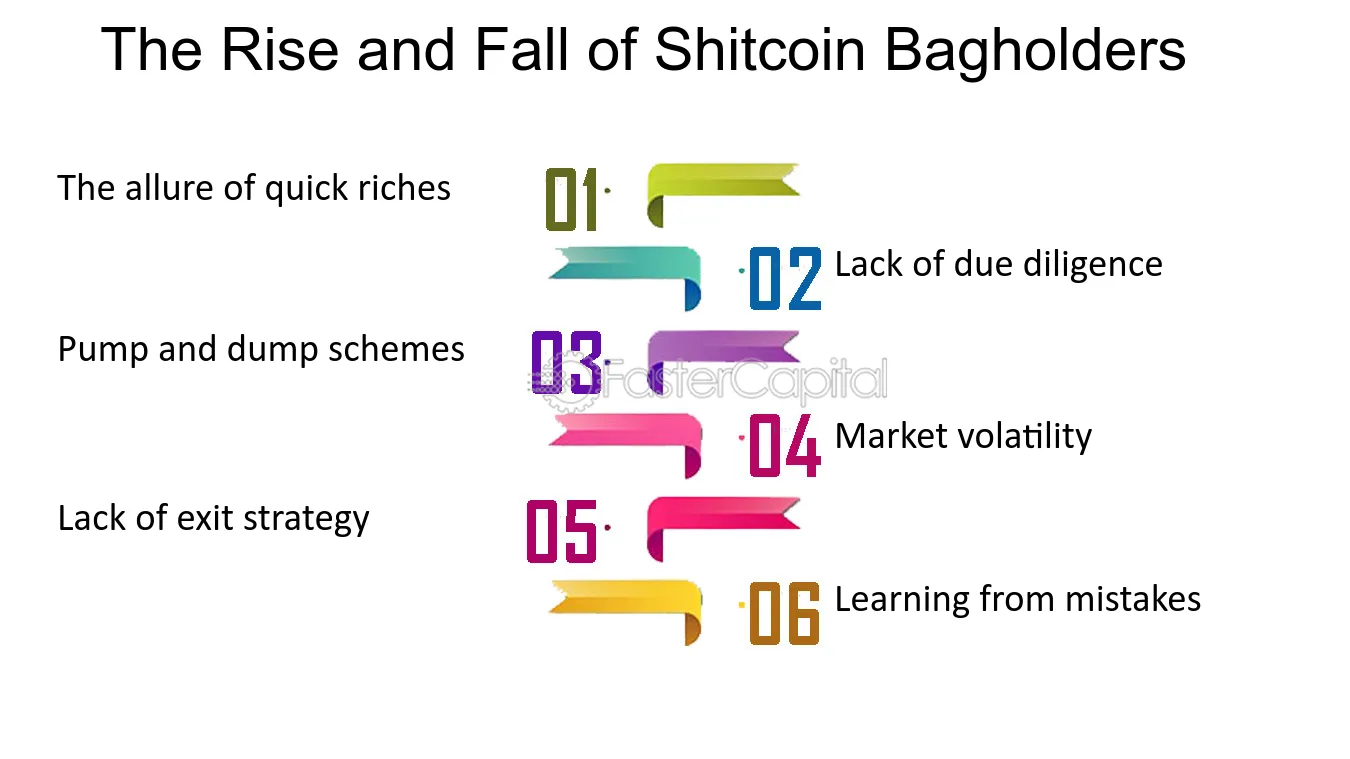
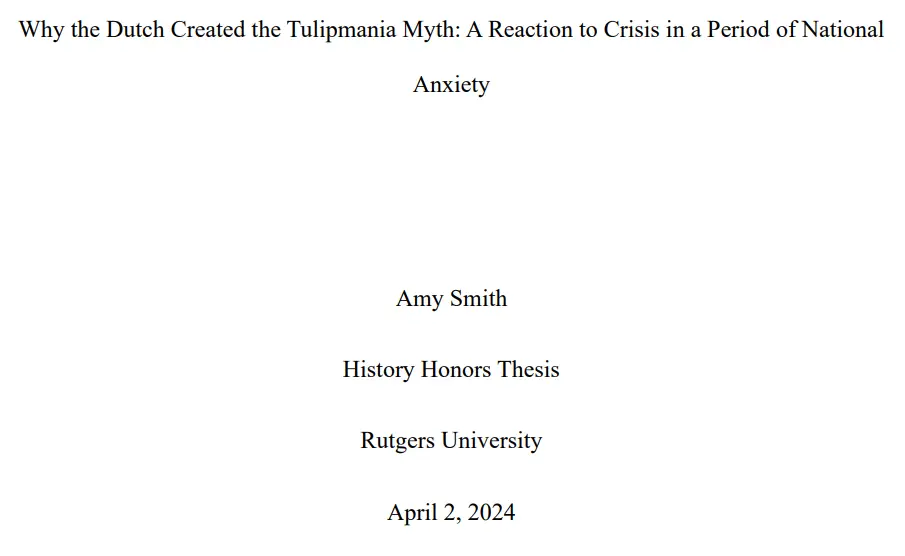
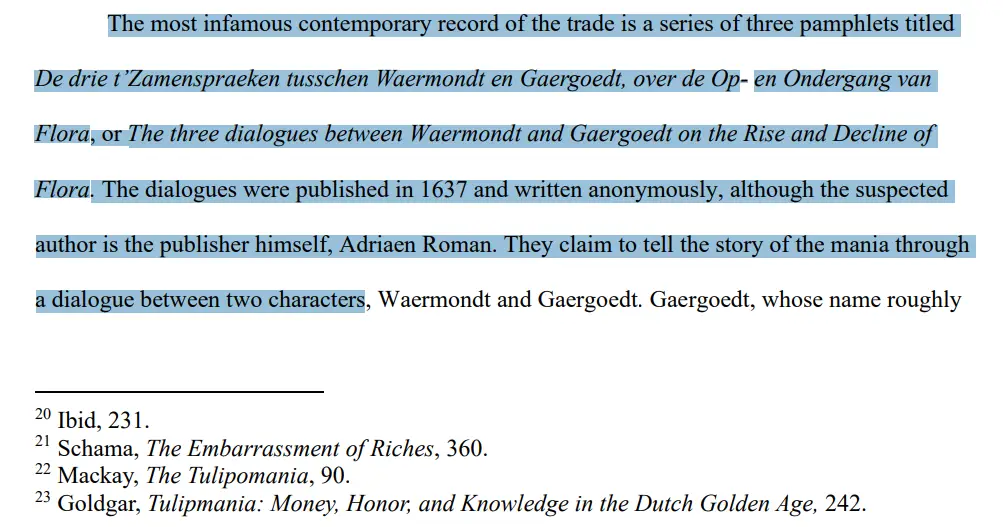
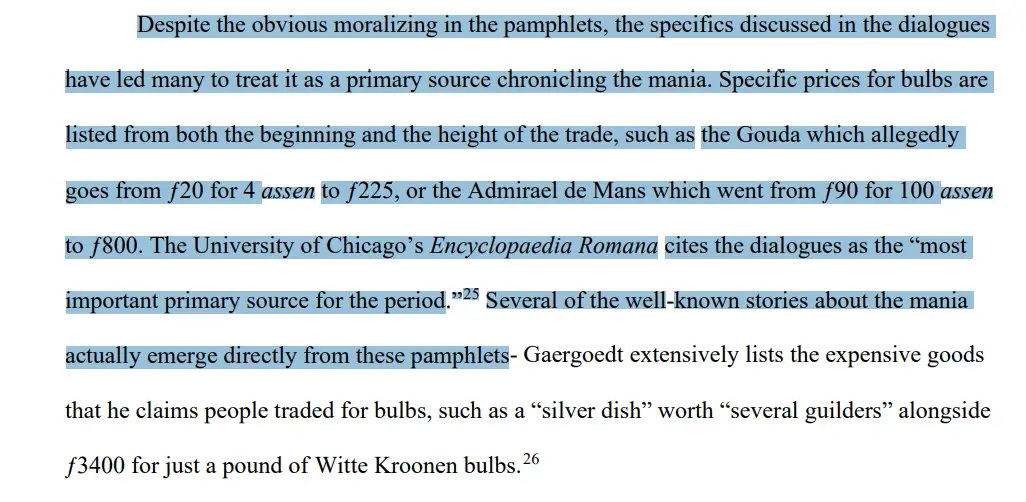

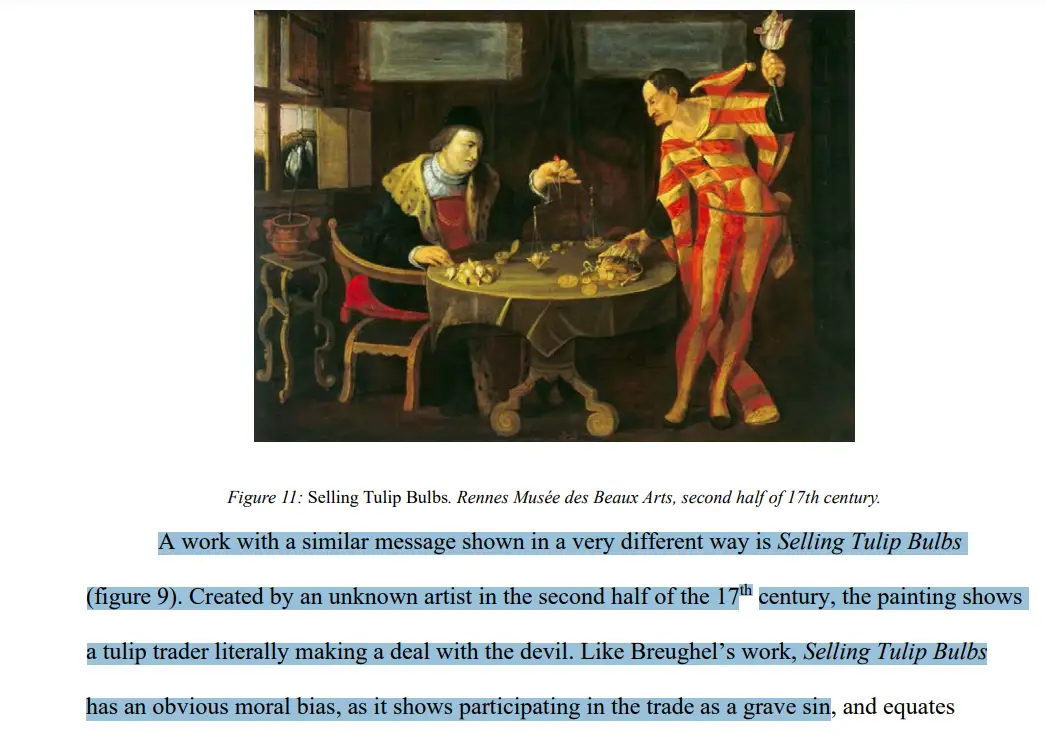
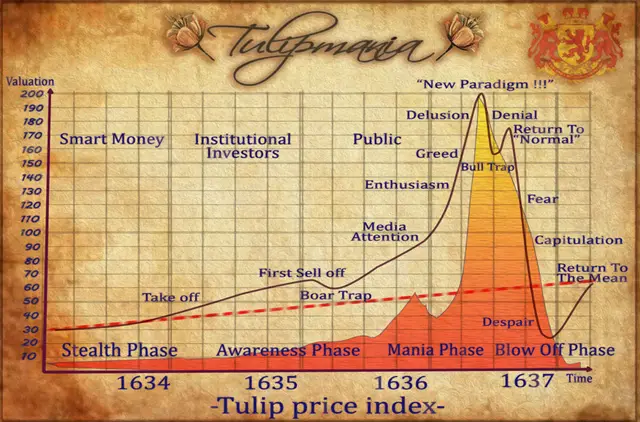
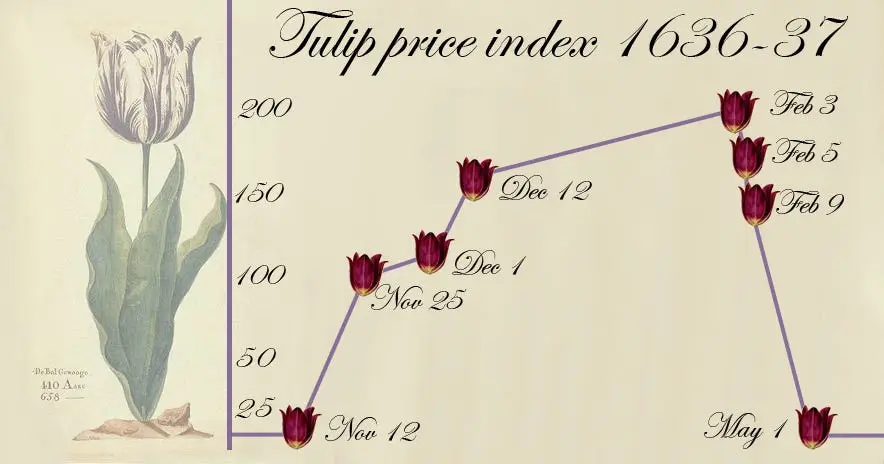

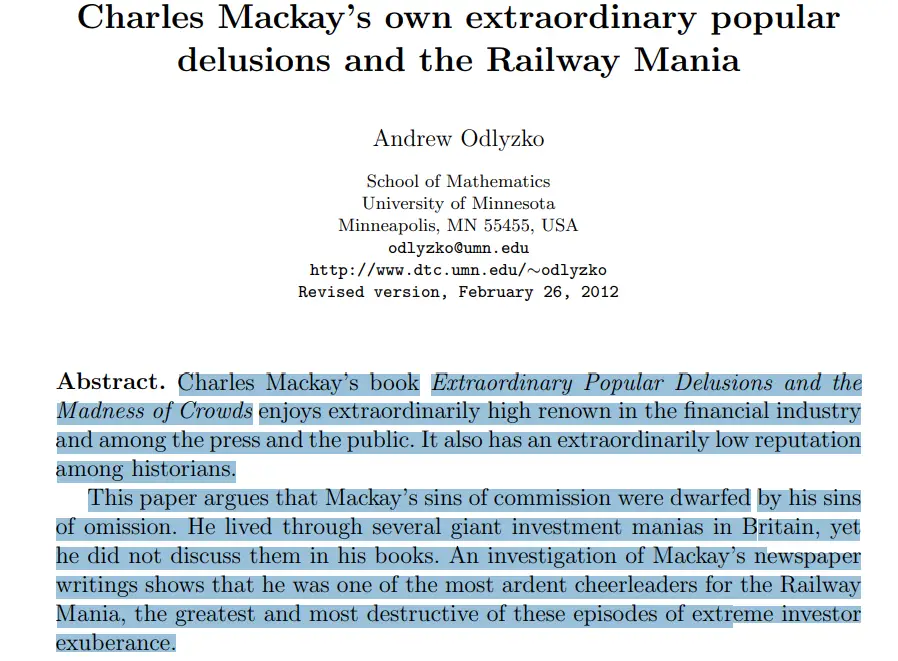
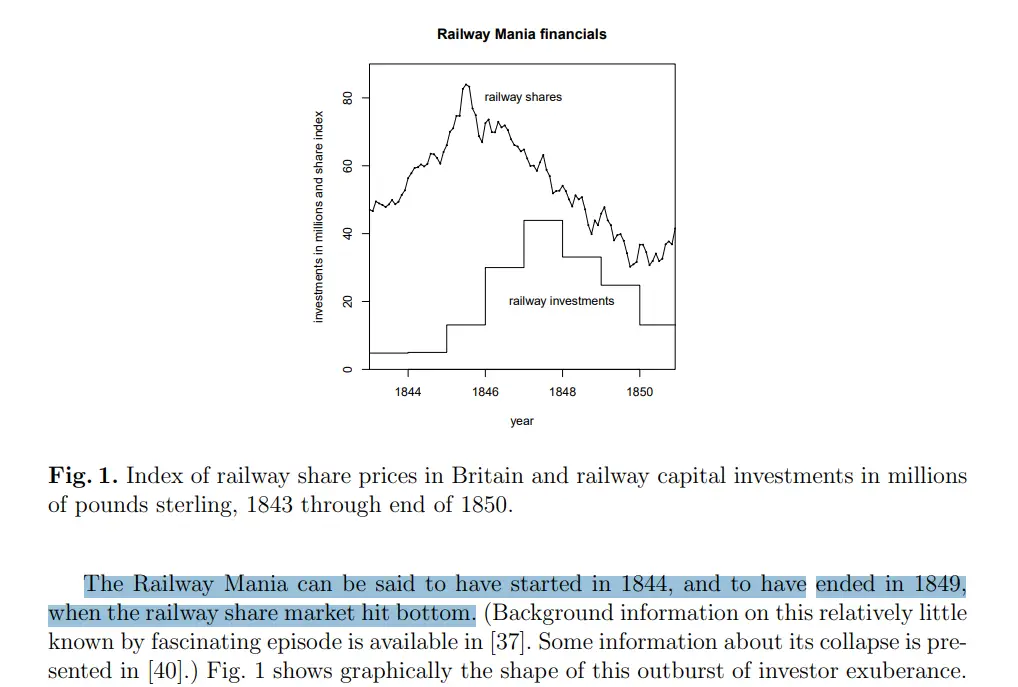
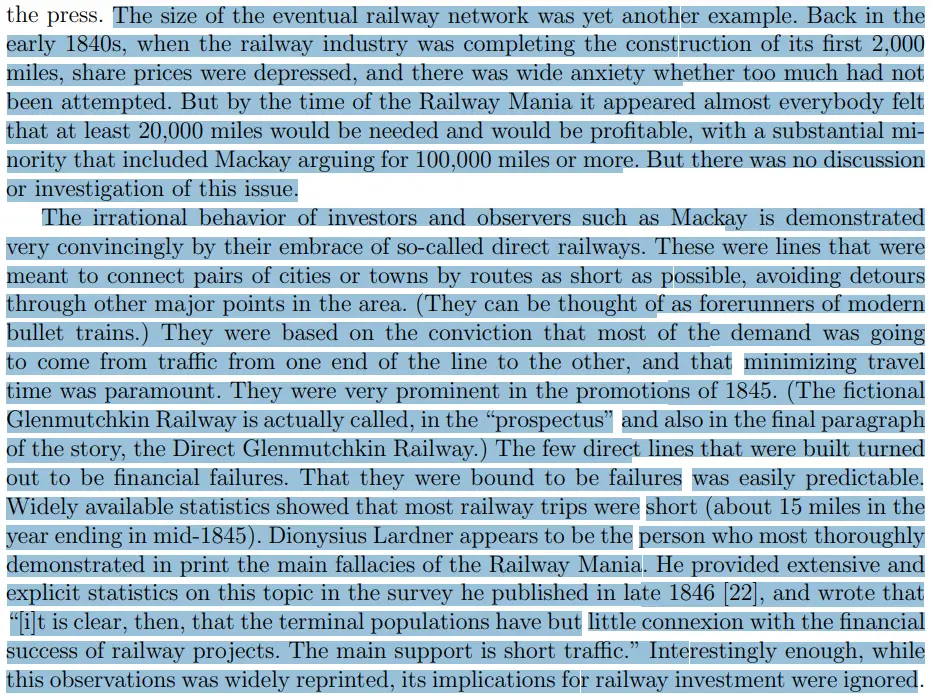
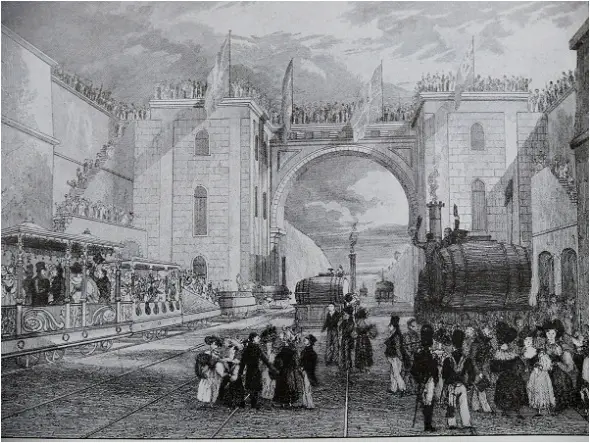
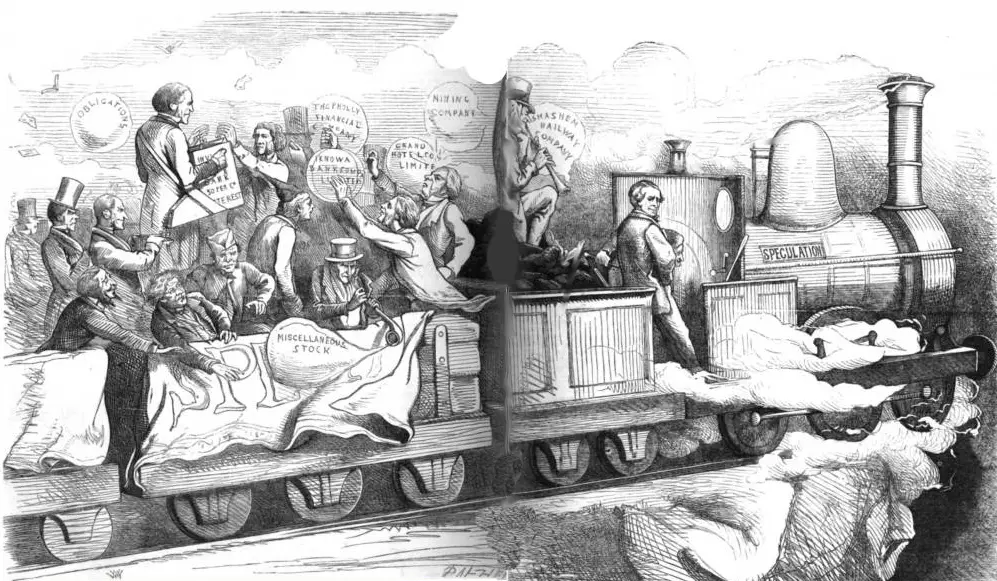


Jump in the discussion.
No email address required.
How did those company scrips work?
From what I understand scrips are like alternative money issued by companies and such. So if it got into negatives, wouldn't they be anti-money, and you could just not pay with it?
Jump in the discussion.
No email address required.
Because it's a contract for a company share, and the type of person whom would engage with such a volatile share contract, was the type whom would levy his assets in his greed or shortsightedness, so he would have had to show collateral to even engage in such a contract to begin with
Sure there likely were people who just skipped town, but your base of wealth would have been wiped. Many peeps who would have taken scrips would have other shares in other companies, they can't exactly run with that shit across the border
Jump in the discussion.
No email address required.
I guess that makes sense.
I don't really know how money works to be honest.
Jump in the discussion.
No email address required.
More options
Context
More options
Context
More options
Context